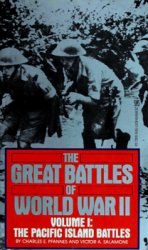The growing wealth of Porfirian elites came from diversified investments in real estate, in financial markets, and in export-related enterprises, not from manufacturing industry.
Edward Beatty, 2001186
Diaz wooed the upper classes with riches beyond the imagination of previous generations. Newly created wealth surpassed old wealth to such a degree that the traditional elite families, such as the Fagoagas, were referred to as the “poor rich.” Many Mexican members of the new elite bore foreign names, such as Creel, Limantour, and Braniff. Wealthy members of the French, American, British, and Spanish communities resident in Mexico also formed part of the elite.187
Those enjoying Diaz’s favor received public positions, which enabled them to increase their wealth. Control of state governments, or the favor of those who did exercise control, allowed the purchase of public lands and former Church and Indian lands at bargain prices. A privileged few received lucrative government contracts, tax exclusions, tariff exemptions, favorable judicial rulings, and concessions to exploit natural resources. Well-placed members of the upper class, including state governors, federal cabinet members, and Diaz’s family members, received high salaries for serving on boards of directors of foreign corporations. This was not mere window dressing—they would arrange the necessary permits, tax exemptions, rights of way, and contracts upon which the investors’ success depended. Corruption was encouraged, since that made government positions so valuable that officeholders would not risk losing their positions by revolting. Such arrangements continued the close linkage between public office and private enterprise that had long characterized Mexico.188
The Diaz administration sought to keep wages depressed, feeling that would attract foreign investors. Low wages permitted high profits. The company owning the Santa Rosa textile factory in Rio Blanco paid 12 to 14 percent dividends between 1902 and 1907. Profits could be further increased by the use of forced labor. Olegario Medina, who had grown fabulously wealthy in the henequen business in Yucatan, used his position as minister of development to arrange for the deportation of Yaqui Indians from northern Mexico to work in the henequen fields of his home state.189
Control of vast amounts of land formed one of the keys to elite wealth. The size of land holdings increased substantially during the late nineteenth century. Landowners used their already immense power to acquire land put on the market as a result of the Reforma. To further increase their holdings, they would violate the agrarian rights of peasant villages. After the defeat of the Yaqui Indians who had previously lived on the land, a single company, the Compania Constructora Richardson, acquired 993,650 acres, extending from just north of Guaymas to the Mayo River and eighty miles inland. Toward the end of the Porfirato, 835 families owned 95 percent of the arable land.190
The Terrazas family of Chihuahua provides a classical example of how politics and business were inseparable. Family patriarch Luis Terrazas, the son of a butcher, rose through the ranks combating Apache raiders. Terrazas, a member of the last generation for which fighting Indians offered a path to upward mobility, then protected Benito Juarez during his stay in Chihuahua and, in the process, insinuated himself onto the national political scene. As governor he expropriated property of another hacendado, Pablo Martinez del Rio, who had supported the French intervention, and then allocated the property to himself.
Terrazas, who served as governor of Chihuahua at various times between 1860 and 1904, assembled 10 million acres of land on which 500,000 head of cattle grazed. His ownership of more than twenty haciendas made him the largest Mexican landowner. Since Terrazas controlled the state government, he not only granted himself and his son-in law Enrique Creel a charter for the Banco Minero in 1882 but exempted the bank from state taxes. His control of government assured that family members would be invited to become partners with foreign corporations investing in the state.191




 World History
World History









